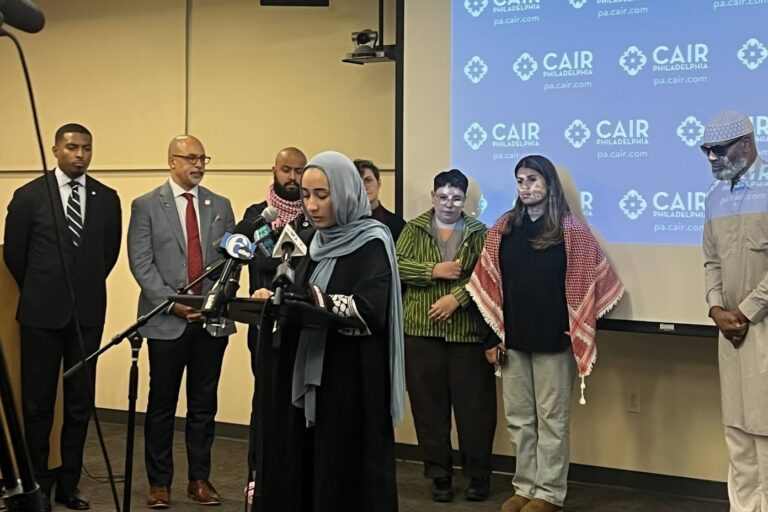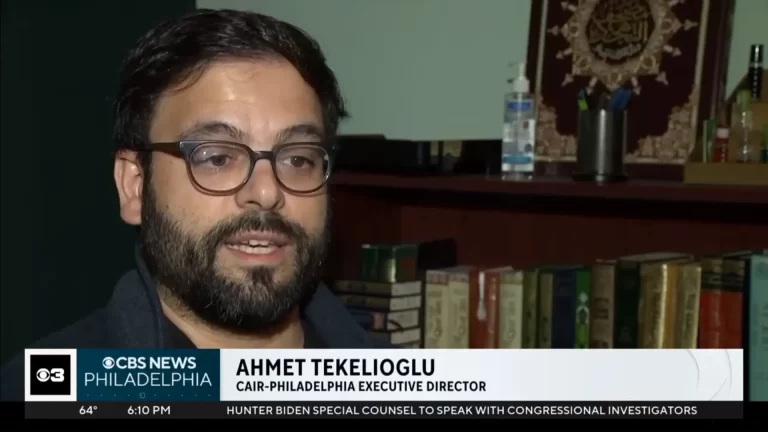![]()
by Moein Khawaja
Philadelphia Inquirer Op-Ed
This season brings a confluence of two important events for me as an American Muslim, one spiritual, one civic. Ramadan, which coincides with August this year, is the sacred month when Muslims believe God revealed the text of the holy Quran to the prophet Mohammed. And Sept. 11 is the day when my country was attacked as never before, as well as when my faith was tarnished as never before.
Many Muslims would cringe at juxtaposing Ramadan and 9/11. Yet both the holy month and the coming 10th anniversary of 9/11 call on our higher senses of humanity and citizenship.
During Ramadan, Muslims abstain from food, sensual pleasures, and vain talk during the daylight hours, focusing on charity, sacrifice, self-discipline, and introspection. Rather than using our free will to pursue whatever animal instincts appeal to our lower minds, Muslims believe we can reach our highest potential by disciplining and ultimately elevating our minds and bodies.
The burn of hunger, giving one’s money to others, and performing extra prayers can be painful, and the temptation to go the easy road is always there. But by taking the hard road, I hope to end up with a healthier body, better relationships, and ultimately a satisfied conscience.
It takes individual willpower and being different from everyone else for a little while. But these are short-term sacrifices for enduring gains.
As an American, meanwhile, I was taught that democracy reaches its full potential when free speech is used not for fearmongering or hate, but for healthy public discourse to solve our problems. Gridlock, polarization, xenophobia, and other problems arise when we refuse to make compromises and cling to old stereotypes about our fellow Americans.
It takes collective willpower to resist these ingrained habits and live up to the ideals of the Founding Fathers. They protected freedom of speech not so we could level tirades at immigrants and others, but so we could hold our government accountable, use our creativity for the greater good, and pursue knowledge.
Both the Ramadan fast and honest civic debate require abandoning our lower desires, temptations, fears, and suspicions, along with promoting the higher virtues of self-critique, dialogue, and mutual understanding.
As the 10th anniversary of 9/11 approaches, I hope we Americans can take a moment to reflect on how we’ve reacted to our challenges over the past decade. On Sept. 11, 2001, thousands of heroes emerged, rushed to help others, and made great sacrifices. But in the subsequent months and years, we sometimes took the easy road, giving up civil liberties too easily and failing to question war, torture, and other policies.
It’s easy to turn a blind eye and join the crowd. It’s not so easy to ask tough questions, demand answers, and even have your loyalties questioned. But these are short-term sacrifices for enduring gains.
This Sept. 11 will be a day of mourning and honoring those we lost. But in the subsequent weeks and months, I hope we can honor them also by using our freedoms wisely.
With the death of Osama bin Laden and perhaps the decline of al-Qaeda, we have a chance to set aside our fear and redefine patriotism. Let’s encourage civilized conversation and condemn extreme rhetoric. Let’s honestly debate freedom vs. security. Let’s demand immigration reform rather than let millions of would-be fellow Americans slip into the shadows. And let’s challenge those who smear minorities and engage in fearmongering about our neighbors and coworkers.
As with the Ramadan fast, we may experience a slight burn for a short while. But in the long run, I hope America will be better for it.





